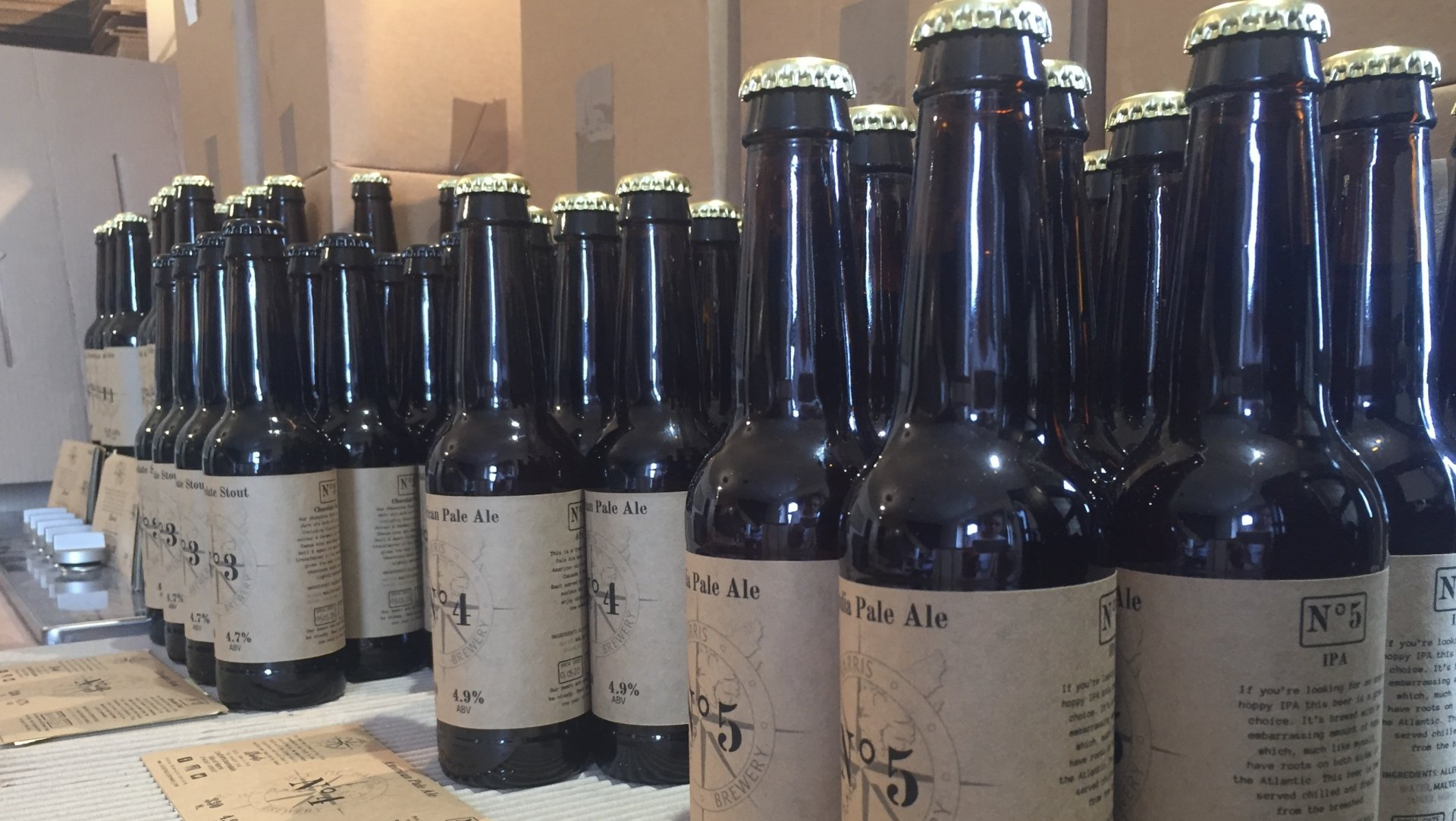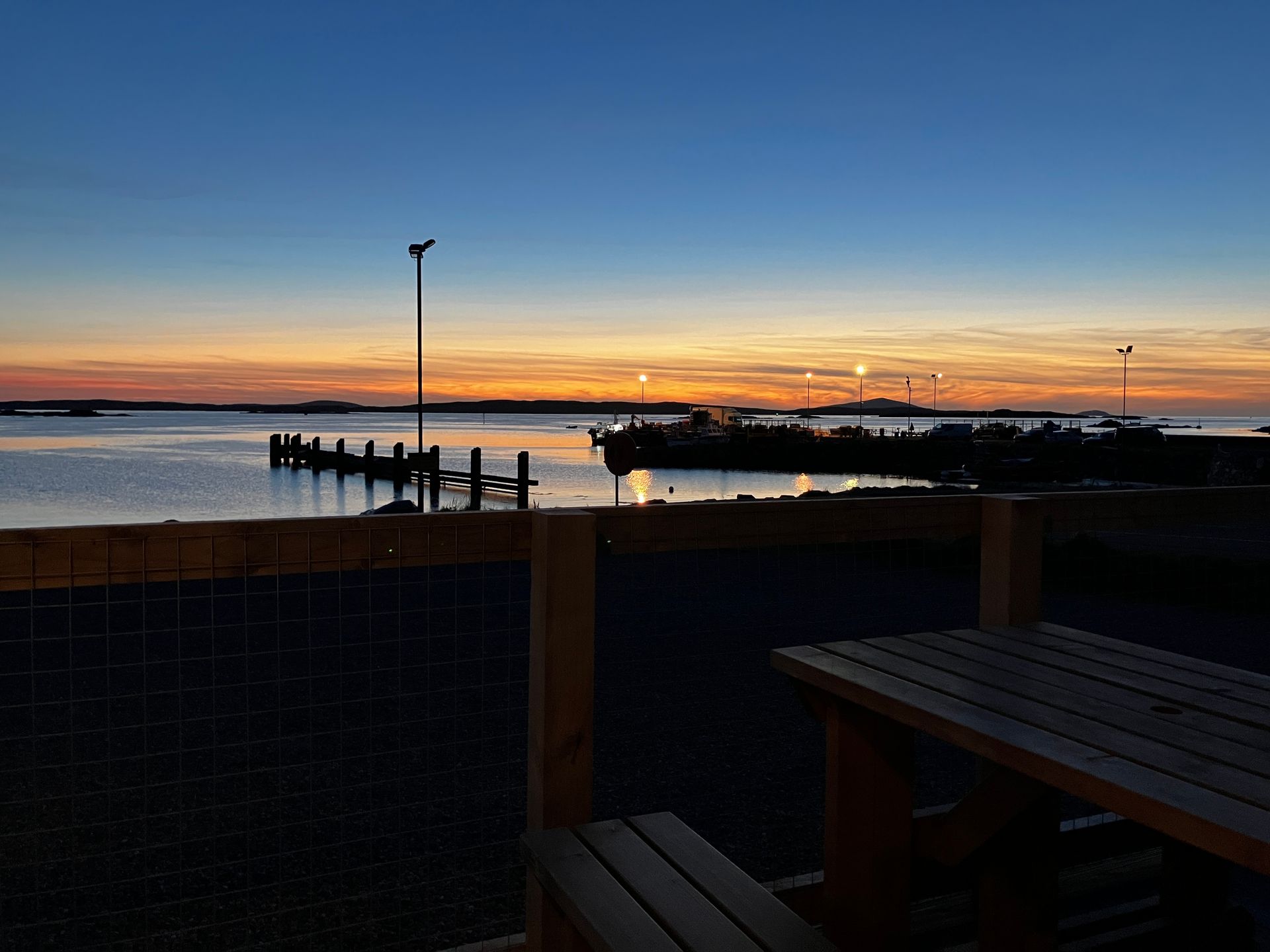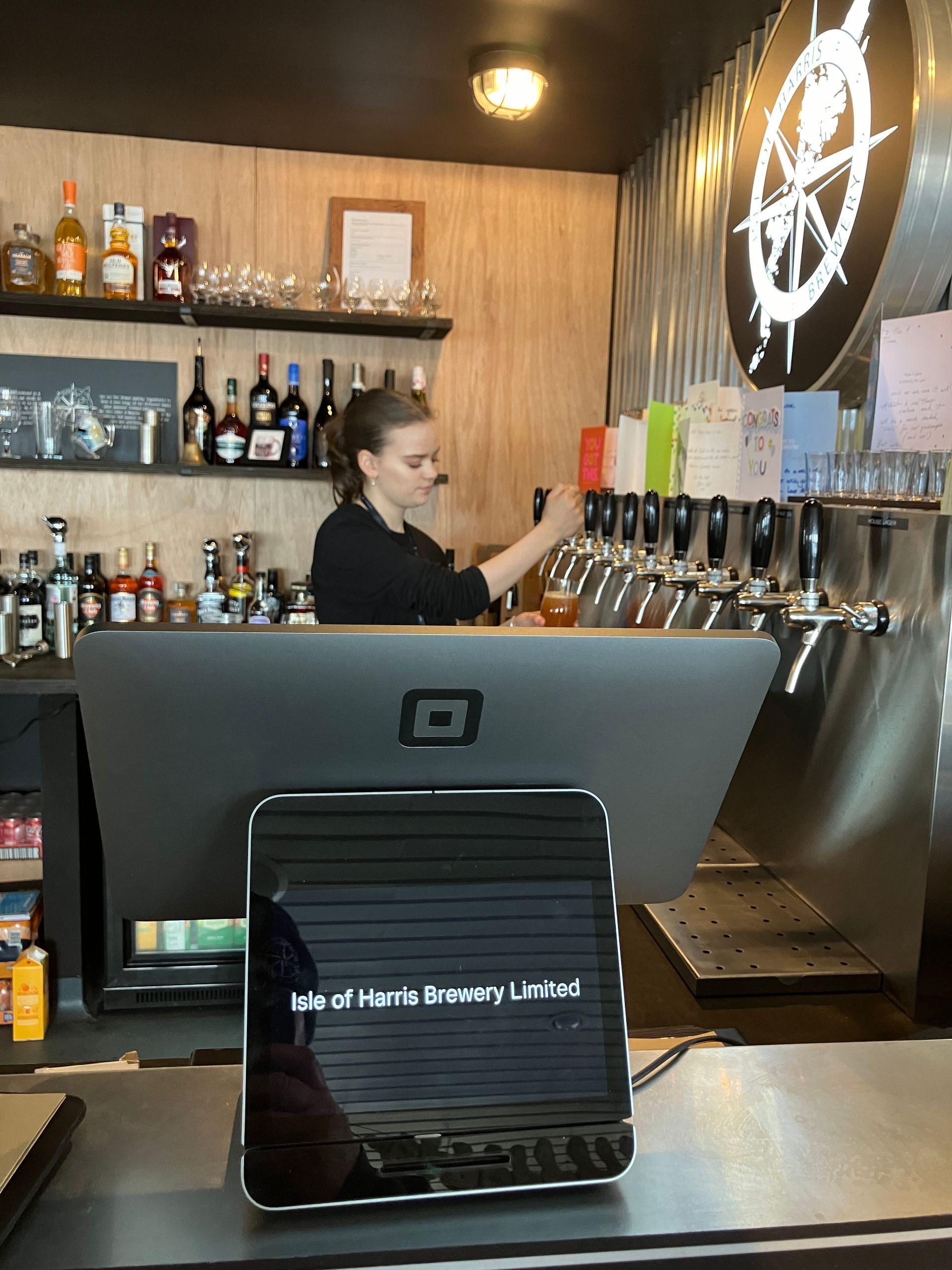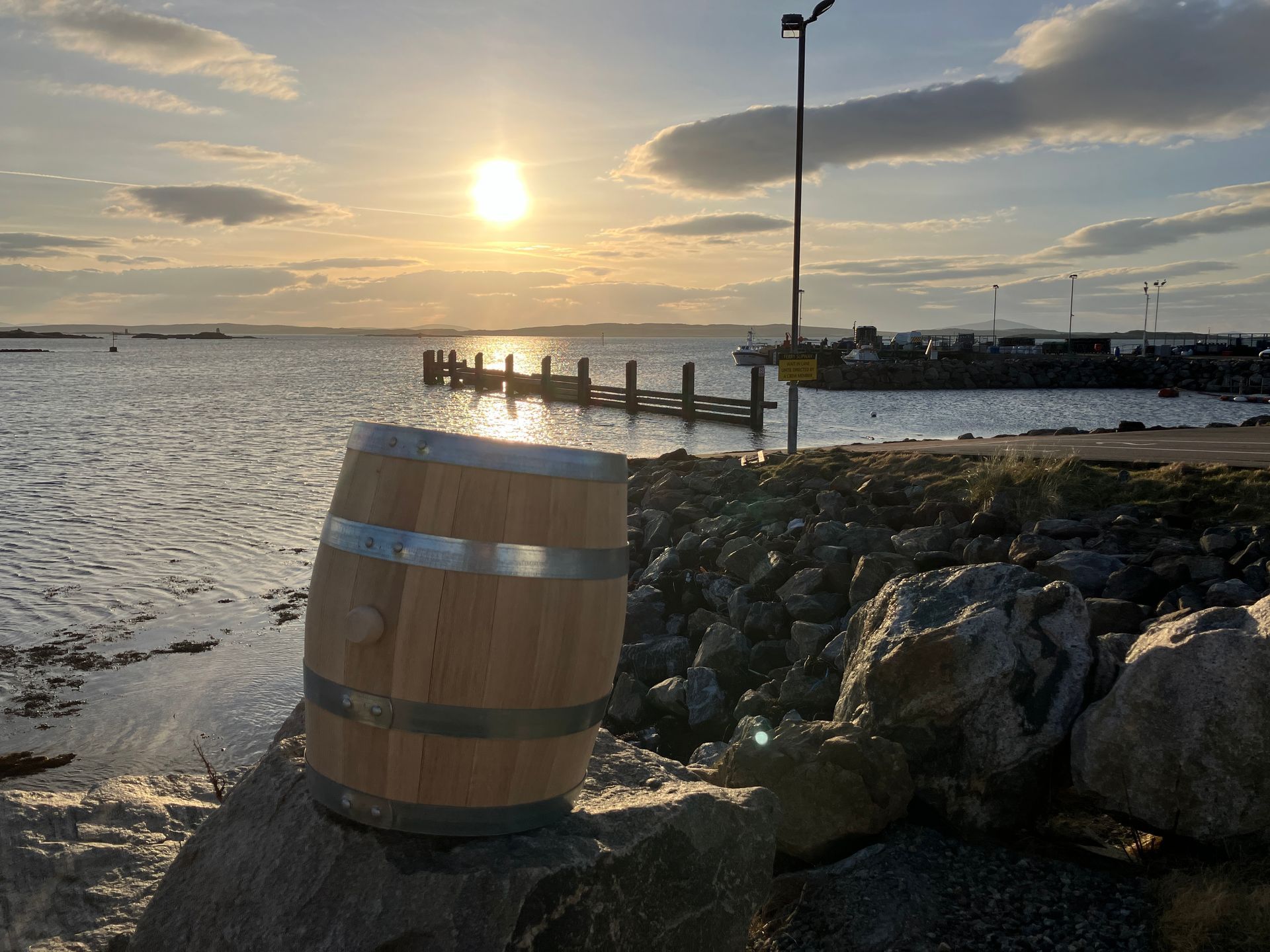5. Big advantages of being small
Anna • 10 July 2020

When size matters. Quality & Community before Quantity
When we moved to Harris in 2014 one of our main motivations was to slow down and enjoy time with our kids. In Oxfordshire we ran a business with lots of employees, lots of clients and lots of stress. We knew that we didn't want to live like that in Harris.
The first people we told about our dreams of starting a small brewery were our family and friends. Almost without exception we were met with at least one, if not all, of the following reactions; "it will be expensive"," it will be stressful" and "lucky you". We made a decision very early on that we would start small and more importantly, stay small.
But how small is small? To be called a microbrewery you can only brew 60,000 hectolitres of beer every year. That is a mere 18 million bottles! Unsurprisingly we don't really think of ourselves as a microbrewery, in fact we're probably even too small to be called a Nanobrewery. Being neither "Micro" or "Nano" we prefer to think of ourselves as a "RidiculouslyTinyBrewery" but why does size matter? Ironically we believe the benefits of staying small are huge.
Firstly, and this is a big one, we haven't had to go into debt to set up. We don't have any investors to please so we can make the sort of beers that we like and brew "brave" beers rather than mass producing easy sells. Our old life taught us that building a business should mean more than making money. Our life in Harris is much simpler and so we don't have to work every hour and chase every penny to make a living for our family.
The second advantage of brewing in very small batches is that we don't need lorry loads of grain, hops and bottles (which is lucky as we live at the end of a single track road!) Our aim is to cause as little impact as possible so we recycle all of our waste products; spent grain is fed to our chickens and the neighbours' sheep or composted on our croft. We are also looking into reusing bottles and hope to be able to introduce a bottle return scheme soon.
Our batches are so small that we can lift grain sacks and fermenters ourselves. We don't need equipment to load grain or stir beer, processes can be completed by hand not machines. In an eight to ten hour day Nick and I can brew one batch, bottle another, label a third and pack the days orders. This means we also have time for walking Spud and talking to the teenagers through their bedroom doors!
One of the unexpected advantages of being so small has been that we have time to get to know our customers. I remember the thrill, just two days after launching, of getting our first repeat order (from someone we didn't already know.) I couldn't resist popping a note and a little surprise in with that order! All of our deliveries include a hand stamped beer mat and a handwritten message but we can also add a handmade card when the delivery is a gift. We have spent many, many hours chatting about beer and Harris (our two favourite subjects) on social media or when we meet local customers when we deliver their beer.
Finally, and most importantly, we think staying small means we are able to focus on quality and community rather than quantity.
So in reply to our loved ones; it hasn't been too expensive, it hasn't ben at all stressful and yes we are very lucky!
The first people we told about our dreams of starting a small brewery were our family and friends. Almost without exception we were met with at least one, if not all, of the following reactions; "it will be expensive"," it will be stressful" and "lucky you". We made a decision very early on that we would start small and more importantly, stay small.
But how small is small? To be called a microbrewery you can only brew 60,000 hectolitres of beer every year. That is a mere 18 million bottles! Unsurprisingly we don't really think of ourselves as a microbrewery, in fact we're probably even too small to be called a Nanobrewery. Being neither "Micro" or "Nano" we prefer to think of ourselves as a "RidiculouslyTinyBrewery" but why does size matter? Ironically we believe the benefits of staying small are huge.
Firstly, and this is a big one, we haven't had to go into debt to set up. We don't have any investors to please so we can make the sort of beers that we like and brew "brave" beers rather than mass producing easy sells. Our old life taught us that building a business should mean more than making money. Our life in Harris is much simpler and so we don't have to work every hour and chase every penny to make a living for our family.
The second advantage of brewing in very small batches is that we don't need lorry loads of grain, hops and bottles (which is lucky as we live at the end of a single track road!) Our aim is to cause as little impact as possible so we recycle all of our waste products; spent grain is fed to our chickens and the neighbours' sheep or composted on our croft. We are also looking into reusing bottles and hope to be able to introduce a bottle return scheme soon.
Our batches are so small that we can lift grain sacks and fermenters ourselves. We don't need equipment to load grain or stir beer, processes can be completed by hand not machines. In an eight to ten hour day Nick and I can brew one batch, bottle another, label a third and pack the days orders. This means we also have time for walking Spud and talking to the teenagers through their bedroom doors!
One of the unexpected advantages of being so small has been that we have time to get to know our customers. I remember the thrill, just two days after launching, of getting our first repeat order (from someone we didn't already know.) I couldn't resist popping a note and a little surprise in with that order! All of our deliveries include a hand stamped beer mat and a handwritten message but we can also add a handmade card when the delivery is a gift. We have spent many, many hours chatting about beer and Harris (our two favourite subjects) on social media or when we meet local customers when we deliver their beer.
Finally, and most importantly, we think staying small means we are able to focus on quality and community rather than quantity.








